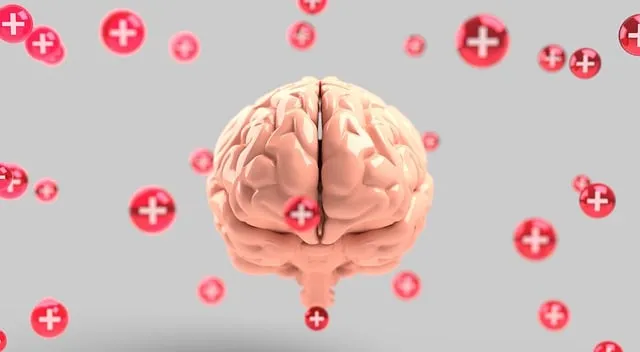Substance abuse arises from personal challenges like stress, anxiety, or trauma, affecting individuals' health, relationships, and communities. Wheat Ridge Kaiser Permanente psychiatry emphasizes understanding underlying causes for effective prevention and treatment through medical care and therapeutic interventions. Early intervention relies on recognizing mental health issues, stressful life events, and behavioral changes. Preventive measures include emotional well-being promotion, stress management, lifestyle modifications, and cultural sensitivity in mental healthcare. Personalized treatment offers therapy, medication management, support groups, and community outreach programs. Post-treatment strategies like mindfulness meditation and policy advocacy contribute to long-term recovery and improved mental health outcomes, with Wheat Ridge Kaiser Permanente psychiatry providing key resources through their phone number.
Substance abuse poses significant risks to physical and mental health, relationships, and overall well-being. Understanding these dangers is the first step towards prevention and recovery. This article explores comprehensive risk reduction strategies, from recognizing early warning signs and identifying personal risk factors to implementing lifestyle changes and accessing treatment options. We also delve into post-treatment strategies for sustained recovery, emphasizing the importance of ongoing support. For expert guidance, reach out to Wheat Ridge Kaiser Permanente psychiatry via their phone number.
- Understanding Substance Abuse and Its Risks
- Identifying Risk Factors and Early Warning Signs
- Preventive Measures and Lifestyle Changes
- Treatment Options and Support Systems
- Post-Treatment Strategies for Long-Term Recovery
Understanding Substance Abuse and Its Risks

Substance abuse, a complex issue, refers to the harmful use of drugs or alcohol, leading to adverse effects on an individual’s health, relationships, and overall well-being. It’s important to recognize that this isn’t merely a personal choice but a multifaceted problem with deep-rooted causes, including stress, anxiety, trauma, or emotional pain. According to professionals at Wheat Ridge Kaiser Permanente psychiatry, understanding these underlying factors is crucial in developing effective strategies for prevention and treatment.
The risks associated with substance abuse are vast, impacting not just the user but also their loved ones and the community. These can range from physical health complications, such as organ damage and addiction, to psychological issues like depression, anxiety relief, and cognitive impairments. Furthermore, substance abuse often exacerbates existing mental health conditions, emphasizing the need for integrated approaches that combine medical care with therapeutic interventions, such as compassion cultivation practices and emotional intelligence-building strategies.
Identifying Risk Factors and Early Warning Signs

Identifying risk factors and early warning signs is a crucial step in preventing substance abuse. By understanding the red flags, individuals and their loved ones can seek help at an earlier stage, potentially averting more severe consequences. Risk factors vary from genetic predispositions to environmental influences; they can include a history of mental health issues, such as depression or anxiety, which are often treated by professionals like those available at Wheat Ridge Kaiser Permanente psychiatry. Additionally, stressful life events, like burnout prevention and self-esteem improvement struggles, can significantly contribute to substance abuse.
Early warning signs might manifest as noticeable changes in behavior, such as increased irritability, isolation from social circles, or drastic shifts in academic or work performance. These indicators often scream for help, encouraging open conversations about mental well-being. Mind over matter principles emphasize the power of conscious thought and emotional regulation, tools that can be learned and applied to counterbalance the allure of substance abuse. Recognizing these signs is not just about knowing when to call a professional like those at Wheat Ridge Kaiser Permanente; it’s also about fostering a culture of support and understanding to facilitate early intervention.
Preventive Measures and Lifestyle Changes

Preventive Measures and Lifestyle Changes play a pivotal role in mitigating substance abuse risks. Organizations like Wheat Ridge Kaiser Permanente psychiatry (phone number available on their website) emphasize proactive strategies, focusing on early intervention and education to foster healthier choices. By integrating evidence-based programs into daily life, individuals can strengthen their resilience against addiction. This includes promoting emotional well-being through techniques like mindfulness, stress management, and enhancing coping mechanisms.
Lifestyle modifications, such as adopting a balanced diet, regular exercise, and sufficient sleep, contribute significantly to overall mental health. Cultural sensitivity in mental healthcare practice is another critical aspect, ensuring that prevention efforts are inclusive and tailored to diverse communities. Burnout prevention strategies for healthcare providers are also essential, as burnout can compromise their ability to deliver effective care and support.
Treatment Options and Support Systems

Treatment options for substance abuse vary widely to cater to individual needs. For those seeking help, Wheat Ridge Kaiser Permanente psychiatry services offer specialized care through a team of qualified professionals. This includes therapy sessions, medication management, and support groups designed to address underlying mental health issues and foster lasting recovery. The approach often involves a combination of evidence-based practices such as cognitive behavioral therapy (CBT), motivational interviewing, and trauma-focused therapies.
Support systems play a pivotal role in long-term recovery. Community outreach programs and peer support networks can help individuals maintain sobriety by providing coping skills development opportunities and fostering social connections. These initiatives encourage participants to stay engaged in their mental wellness journey, offering practical tools for managing triggers and challenges. By leveraging available resources, including those from Wheat Ridge Kaiser Permanente and local community organizations, individuals on the path to recovery find a robust network of support that enhances their chances of success.
Post-Treatment Strategies for Long-Term Recovery

Post-treatment strategies play a pivotal role in ensuring long-term recovery for individuals overcoming substance abuse. One effective approach is integrating mindfulness meditation practices into daily routines. This ancient technique helps individuals cultivate present-moment awareness, enabling them to manage cravings and triggers effectively. Research indicates that regular mindfulness practice can reduce relapse rates and enhance overall well-being, making it a valuable tool for sustained recovery.
For continued support, engaging in mental health policy analysis and advocacy is another powerful strategy. Individuals can become advocates for evidence-based policies that prioritize prevention, treatment, and recovery services. By contributing to Mental Health Awareness campaigns and community initiatives, they can help reduce the stigma associated with substance abuse and improve access to quality psychiatric care, such as that offered by Wheat Ridge Kaiser Permanente’s psychiatry department (phone number: [insert number]). This collective effort fosters a supportive environment, enhancing the likelihood of long-term recovery and improved mental health outcomes.
Substance abuse is a complex issue, but with a comprehensive approach to risk reduction, recovery is achievable. By understanding the risks and identifying early warning signs, individuals can take proactive measures through preventive lifestyle changes. Accessing treatment options and supportive systems, such as those offered by Wheat Ridge Kaiser Permanente psychiatry, plays a vital role in short-term healing. Furthermore, implementing post-treatment strategies ensures long-term success and a reduced risk of relapse. Remember, seeking help is the first step towards a healthier, safer future.






